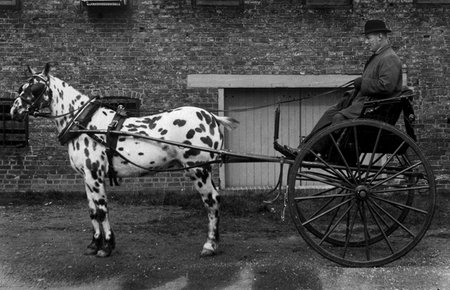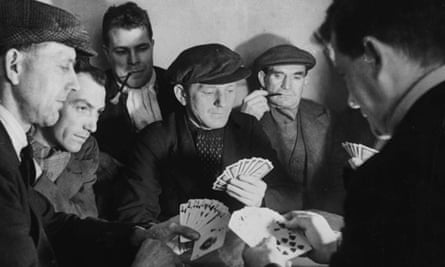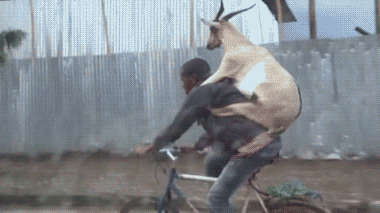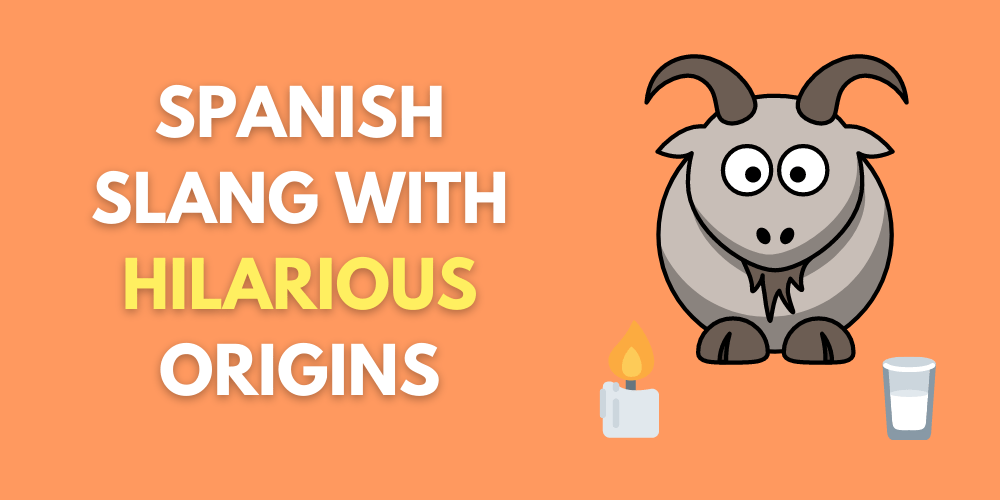Where do these Spanish slang words actually come from?
Spanish is a language rich in slang and bad words, and if you really want to express yourself there’s no way you can skip this aspect of the language. Now you’ve probable heard the words ‘pringao’, ‘espabilar’ or ‘cabrón’ but, do you actually know where do these Spanish slang words come from? Let’s figure it out!
Table of Contents
Dar caña
The expression ‘dar caña’ means to speed it up, to hurry up. In the past, whips or rods made from the branches of the plant known as ‘cañaheja’ were used. These branches were used to whip cattle or horses to speed up the pace or not get out of the way, but they were also used by some people when they wanted to inflict physical punishment on someone (either to whip them on the back, buttocks or palm).

The expression ‘dar caña’ (also in the form ‘meter caña’) is used to colloquially refer to the act of recriminating or provoking someone to do something, hurry up or finish it. This expression is also used to refer to the fact of giving/putting intensity or speed (“¡métele caña al coche!”, “¡dale caña!”).
So it can be used in any informal conversation to tell someone to hurry up or speed up a vehicle. For example: “Dale caña tío, ya se está haciendo tarde” or “¡Dale caña! La luz ya cambió a verde”.
Tener buena/mala pinta
This expression is used to describe the good or bad external appearance of something. It can be used alone or before the word good/bad, for example: “¿Qué pinta tiene el restaurante al que vamos a cenar?” (How does the restaurant where we are having dinner look like?) or “Eso no tiene buena pinta, mejor no lo comas” (That doesn’t look good, don’t eat it).

In the past ‘Pinta’ was the name used to designate the sign that the cards of the Spanish deck have on their ends and that, without having to fully discover them, one can know which suit the card is (Clubs, Diamonds, Hearts, Spades) and, therefore, to know by the ‘Pinta’ if you have a good or bad hand.
It was frequent to hear among the players such typical phrases as: “A ver qué pinta tienen las cartas que me has dado” (Let’s see what the cards you have given me look like) and/or think to themselves “Estas cartas no tienen muy buena pinta” (These cards do not look very good).
Over time this expression became popular in everyday language and began to be used to define many people by their clothing (good or bad ‘pinta’) and also to judge situations or places by their appearance: “Hoy tiene pinta de que va a llover” (Today it looks like it is going to rain), “Según sea la pinta del restaurante nos quedamos a comer o no” (Depending on how the restaurant looks, we stay for lunch or not).
Cagarse en la leche
One of the most controversial Spanish slang words and expressions is ‘cagarse en la leche’, which for someone that understands Spanish just doesn’t sound right. After all, who in their right mind would poop on milk?
‘Cagarse en la leche’ expresses anger or irritation at something, indicating contempt. It should only be used with people you trust since it’s a very vulgar expression. For example: “¡Me cago en la leche, este tío dejó los platos sucios de nuevo!”.

The original expression was: “Me cago en la leche que mamaste”, that means “I shit on the milk you sucked”, giving to indicate contempt to the mother of whom is insulted, since it’s very common to use the maternal figure to insult or curse. This phrase later became “Me cago en la leche”, and now it’s only used to curse.
Pringao

A ‘pringao’ or ‘pringado’ is someone that’s easily fooled, in other words a loser. It’s normally used to mock friends or other people that have been fooled. For example: “Eres un pringado tío, ya deja de pensar en ella” (You are a looser dude, stop thinking about her).
Its origin though is a little bit darker. The word ‘pringar’ means to soak, wet or moisten with ‘pringue’ (fat) bread or any food. Back in the days the ‘pringado’ was one that was marked by ‘pringue’ dictated by the judge.
The one who committed a misdemeanor received a trickle of oil or hot butter on his skin so that he would be marked for life, so that it would be ‘noted’ that he had a record when he was arrested again wherever he was.
Espabilar

Espabilar means to pay attention, to wise up someone that hasn’t been particularly smart at the moment. A person is said to be ‘espabilado’ (or despabilado) as a clear reference to how intelligent and awake he/she is in any situation in life, and there are many occasions when the term (and its multiple variants) is also used as an interjection to tell someone to wake up.
For example: “Este niño es muy espabilado para su edad” (This kid is very smart for his age). “¡Espabila, que vamos a llegar tarde!” (Hurry up, we’re going to be late!).
In its origin the term began to be used as ‘despabilar’ and we find its origin in the union of the prefix ‘des’ (negation, deprivation, outside of) and ‘pabilo’ (wick that is in wax candles and formerly in oil lamps or lamps).
Despabilar (and later espabilar) was the act of removing the already burned part of the wick and with this the flame was intensified, giving more and better light. Hence, the term began to be used as a synonym for the action of inciting or stimulating someone to make them perform more or indicate how awake and resourceful they are.
Cabrón
This takes us to the last of our Spanish slang words, maybe the one you’ve heard the most but probably don’t have any idea on its origin. After all, how many times have you heard the word ‘cabrón’ used to insult or to just call someone?
Cabrón means person of bad intention or character. This term is generally used to insult someone, but can also be used as a joke with close friends. For example: “Ese tío es un cabrón, mira adónde echa la basura” (That guy is a jerk, look where he throws the trash!). “Qué cabrón, te aumentan el sueldo y además te compras un coche nuevo” (What a bastard, they raise your salary and you buy a new car).
The origin of this word is uncertain but one of the most frequent hypotheses is that in the past when shepherds spent too much time in the field, they used to have sexual relations with their goats, sheep and cows.

The word “cabrón” is given to the male goat (cabra macho) that witnesses how the shepherd has sexual relations with his females without being able to do anything. Perhaps that is why someone who’s been cheated on is also called a ‘cabrón’.
Conclusion
It goes without saying that Spanish slang and expressions are very rich in history. Just keep in mind that some of them should be used carefully since they contain bad words as well. With that being said, which one was your favorite? Let us know in the comments below!
If you are interested in learning more slang in Spanish from Spain check out our new book 102 Slang and Curse words in Spanish from Spain. Find out the meaning and origin of the most-used words in informal Spanish from Spain! 😉

Comments